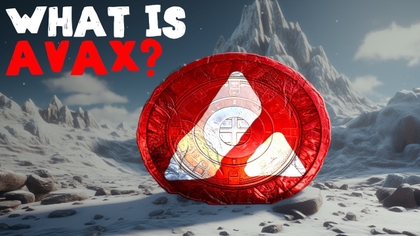Ace quick missions & earn crypto rewards while gaining real-world Web3 skills. Participate Now! 🔥
Legislators in US Introduce "SEC Stabilization Act," Aims to Fire Gary Gensler
Gary Gensler could be forced to say goodbye to his position as SEC Chair.
"SEC Stabilization Act" has been recently proposed in the House of Representatives by US Representative Warren Davidson.
According to the announcement shared on June 12th, the main goal of the proposal is to restructure the US Securities and Exchange Commission (SEC) and fire current Chair Gary Gensler.

Did you know?
Subscribe - We publish new crypto explainer videos every week!
What is AVAX? (Avalanche Network Explained With Animations)


US Representative offers to create a board of six commissioners that would make decisions regarding "rulemaking, enforcement and investigations." This would mark a significant redistribution of power among the SEC chair and commissioners.
It is assumed that the board would prevent any party from dominating the commission and introduce the creation of an executive director post.
It is worth noting that Davidson's proposal hasn't appeared from thin air. The US Representative revealed plans for such a bill earlier this year.
Representative Tom Emmer, a co-writer of the proposed legislation, expressed his support by stating:
American investors and industry deserve clear and consistent oversight, not political gamesmanship. The SEC Stabilization Act will make common-sense changes to ensure that the SEC’s priorities are with the investors they are charged to protect and not the whims of its reckless Chair.
Though the lawmakers' official statements didn't reference cryptocurrencies, Davidson and Emmer are publicly recognized for their pro-crypto stance and critique of Gensler's administration of the SEC.
Emmer has gone as far as to label Gensler a "bad faith regulator." It is worth highlighting that Davidson serves as the vice chair of the House Financial Services Committee's new Subcommittee on Digital Assets, Financial Technology, and Inclusion.
The "SEC Stabilization Act" by Representatives Davidson and Emmer underscore their concerted effort to introduce vital changes to the SEC, aiming to bolster investor protection and mitigate unchecked authority. However, its direct impact on the cryptocurrency industry remains to be seen.
























